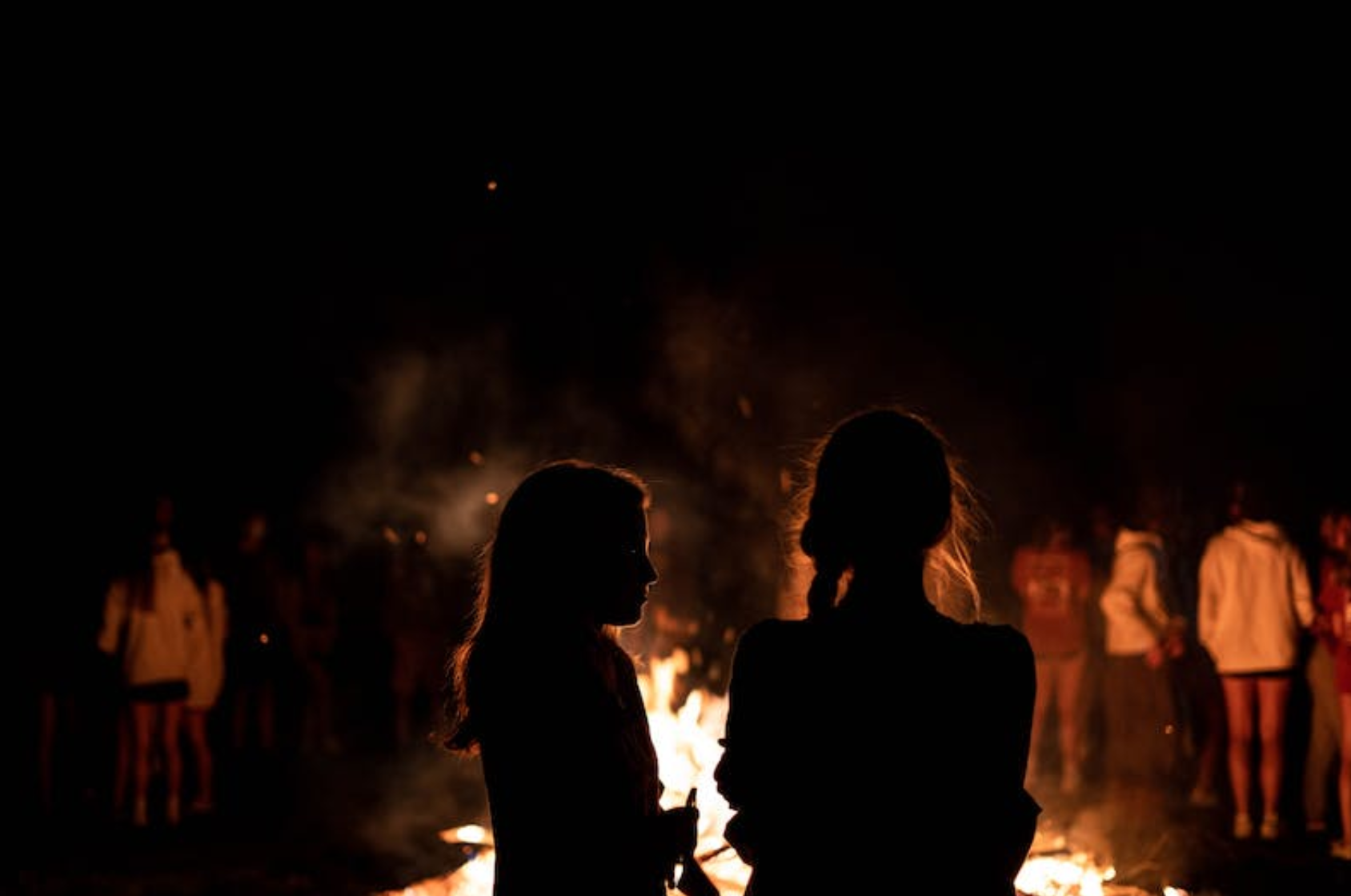
To me, trauma-informed care is about reminding people that they are always at choice at all times, because it’s easy to forget.
It’s not that touching someone’s hand or looking them in the eye is dangerous – what’s dangerous is our cultural obsession with compliance, and the way that, if an instruction is given, people feel that they must follow it or risk punishment, or worse, ostracism.
It is not traumatic to touch the hand of a friendly person in a workshop, but it may be triggering to a person to feel they are compelled to let someone touch them, if they have felt in their lives that they don’t have autonomy over who touches their body.
For some people who have autism, extended eye contact can be overwhelming, and having the option to connect with the other person via just standing in each other’s field with eyes closed is a more subtle more equally potent mode of connection.
For the majority who feel happy to touch and be touched and make extended eye contact, it is a slight but transformational difference to be given the choice not to, and thus to know they are both engaging out of an intrinsic and true desire to do so, rather than just because “teacher said”.
To cultivate the connection to the inner wellspring of true desire, rather than operating on the level of obedience, could be the distinction that might free us all of the helpless feeling that many of us have - that we are not agents of our own lives, and that we are powerless to protect our world.
These experiences are small gestures of course, but reminding people that they have choice over what happens to their bodies, and their lives, can cumulatively rebuild a culture where the social fabric has been so degraded by obedience. How many people have we encountered - maybe even ourselves - who will complain about activities which degrade their ethics, health, or the wellbeing of their family, community, or earth, but carry on with them because they “have to”.
Adolf Eichman, often described as the ‘manager’ of the Holocaust, famously tried to defend himself against charges by saying, “I was just following orders”. How much damage is done the world over because we have been so acculturated to follow whatever orders we have been given?
Of course we are all always at choice, all the time. But in a highly traumatised culture, where our sense of belonging feels so tenuous, and the threat of punishment - physical, financial or social - is so present, a trauma-informed care model does two important things;
1. Reminds people that they have the power to make choices that determines what happens to them (and thus, to their world, of which they are a part).
2. It gives a nod to the fact that often we are gathered as strangers, and we don’t yet know, and to a degree can’t ever truly know, the stories of the people around us. And how what might seem innocuous to one person might alarm another person so profoundly that all benefit the workshop sought to offer is lost. And now this person has received yet another reinforcement that they are misunderstood, alone, and not safe in this world.
If one of the values we are espousing is the interconnectedness of all beings, and how as Robin Wall Kimmerer says, “all flourishing is mutual”, how can anyone benefit from the workshop if even one participant is lost in pain?
Here are some common arguments I’ve heard against trauma-informed care; it takes too long; it weakens people to cater to their ‘problems’; it makes things awkward; it makes things boring and everything is watered down; everybody seems fine and no one has complained to me so they must be fine; it will splinter the cohesion of the group to give too many options; special care will make everybody want it and we don’t have capacity for that; it would be too hard to change how we do things; duress is necessary for growth.
I can understand the reasoning behind all these thoughts. But in my experience, having grown up in a mainstream context, and now having lived, worked, and socialised in trauma-informed settings for most of the past decade, I have found that the trauma-informed spaces allow for a far greater degree of strength, resilience, cohesion and joy. It ensures a baseline of safety that actually allows for people to enter more deeply into an experience.
And in response in particular to the idea of duress being necessary for growth – a friend told me about a conversation he had with a South American shaman who, when questioned about the role of duress in rites of passage for Westerners, replied, “The people in the West have suffered enough”.
Even within a single species, the gifts and needs of each individual are unique. And diversity strengthens (and homogeneity weakens), any living system. An ecosystem (in this case a workshop), should offer an abundance of ecological niches to allow for the harmonious and integrated collaboration of all beings, in service to the health of the whole.
Disobedience and Trauma-Informed Care
